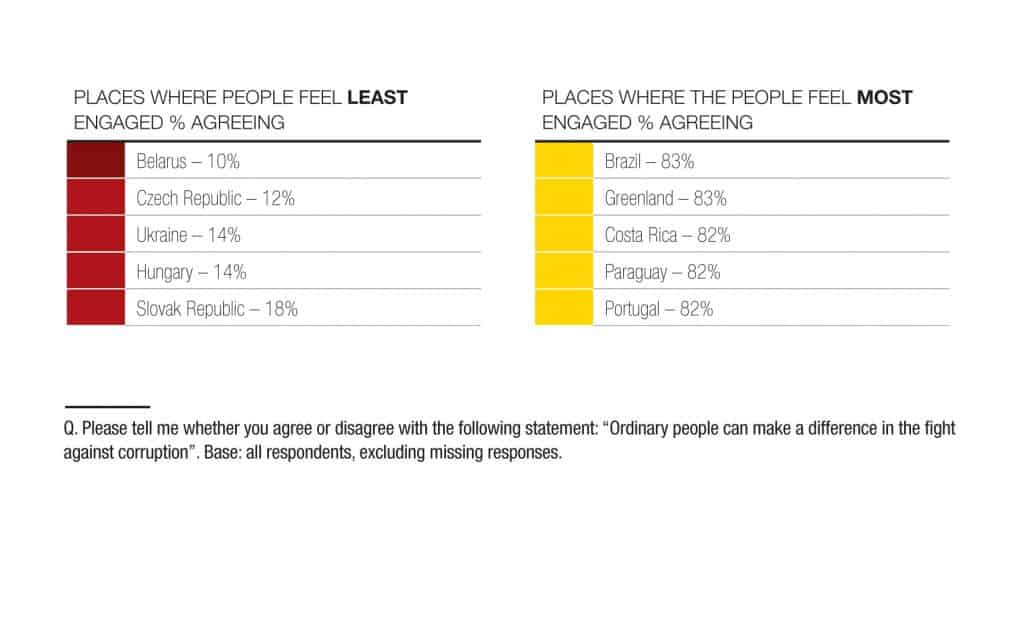Transparency International (TI) yesterday launched the consolidated version of its Global Corruption Barometer series (GCB), based on five regional reports that have been published over the last two years.
The GCB – the world’s largest survey asking citizens about their direct personal experience of corruption in their daily lives – shows what people experience and just how far countries have to go to fight corruption.
The results cover 119 countries, territories and regions around the globe. It is based on interviews with 162 136 adults from March 2014 until January 2017.
Full summary report: People and Corruption: citizens’ voices from around the world
Ordinary citizens are often the very people who experience the brunt of corruption. They face demands for bribes to see a doctor, find a school place for their children, or file a police complaint – these are demands from people who are mandated to serve the public. Instead, citizens are forced to accede to unreasonable and illegal demands, and it is always those who are least able to pay a bribe who suffer most.
It’s no wonder that measuring corruption is at the heart of the UN Sustainable Development Goals. TI also believes it is important to ask real people how they face corruption in their daily lives.
Bribery rates around the world
Nearly one in four people paid a bribe when they accessed a public service in the 12 months prior to when the question was asked:

So it is not so surprising that the majority of people around the world do not think governments are doing well fighting corruption:

Ordinary people can make a difference
The good news is more than half the people around the world – and particularly young people – agreed that citizens could make a difference.
Globally, 58% of people aged 24 and under said they feel empowered to make a difference, and 50% of those aged 55 also agreed.

Police and elected officials named most corrupt
We asked people to identify which institutions they felt were most corrupt. The police and elected officials came tied top overall with 36% of people responding they were highly corrupt, more than for any other group or institution we asked about.
There were some regional differences:
- In Asia Pacific (39%) and Sub Saharan Africa (47%) police were seen as the most corrupt.
- In Europe and Central Asia (31%) elected representatives were seen as the most corrupt.
- In the Americas both the police and elected representatives fared worst (46%).
- In the Middle East and North Africa elected representatives, tax officials and government officials were thought to be highly corrupt by 45% of the population, a higher percentage than for any other institution.
It is also possible to compare levels of bribery across regions, noting that there are regions where more citizens report being affected by bribery in their interaction with public services.
Regional reports in the Global Corruption Barometer Series:
- Latin America and the Caribbean
- Asia Pacific
- Europe and Central Asia
- Middle East and North Africa
- Sub-Saharan Africa
Methodology, FAQs and data:



